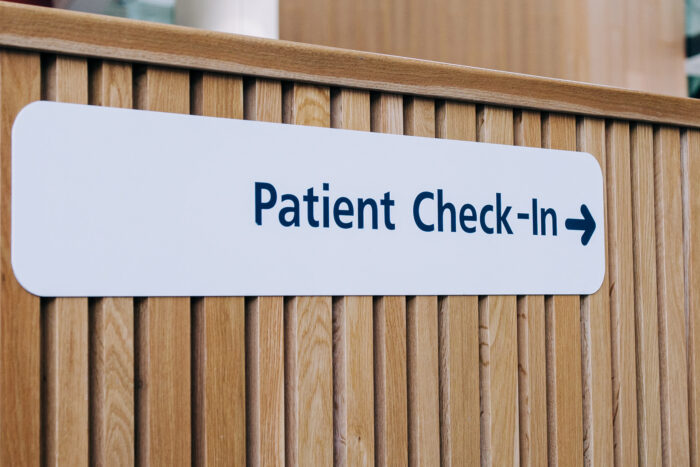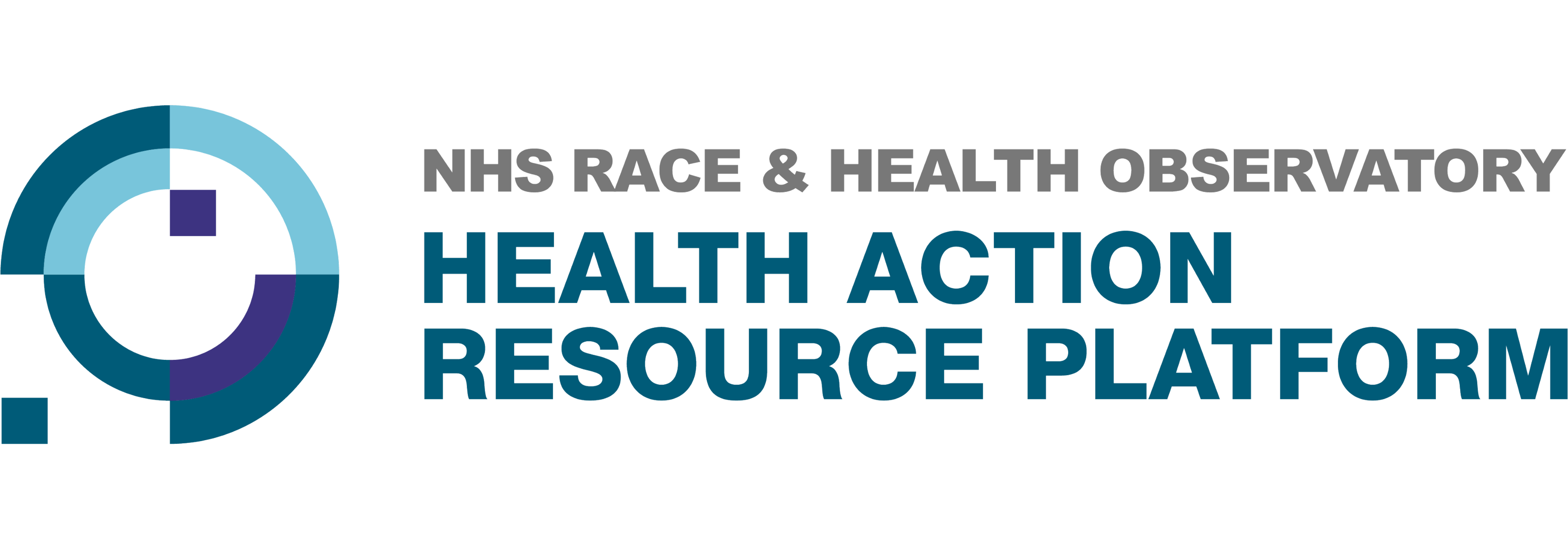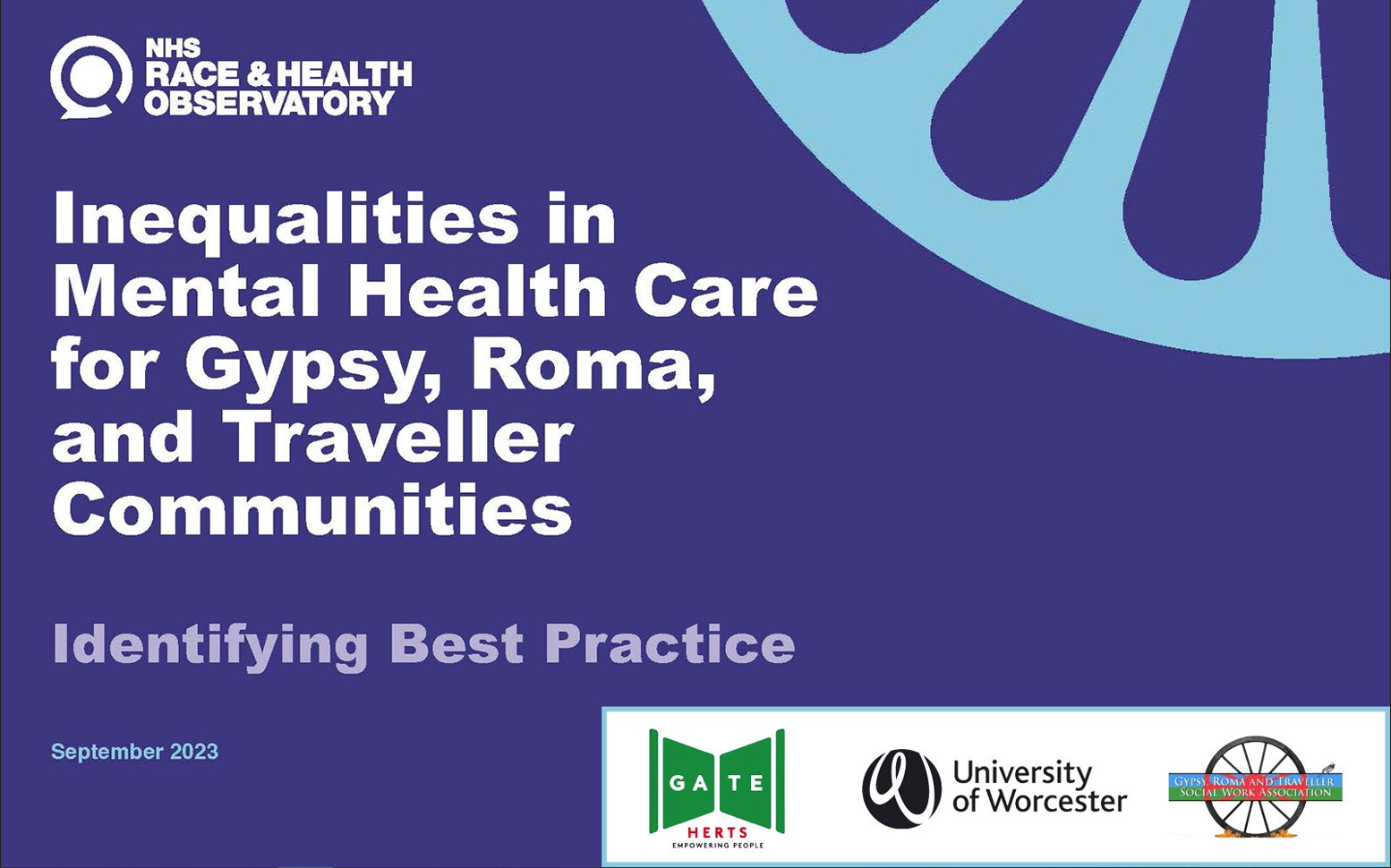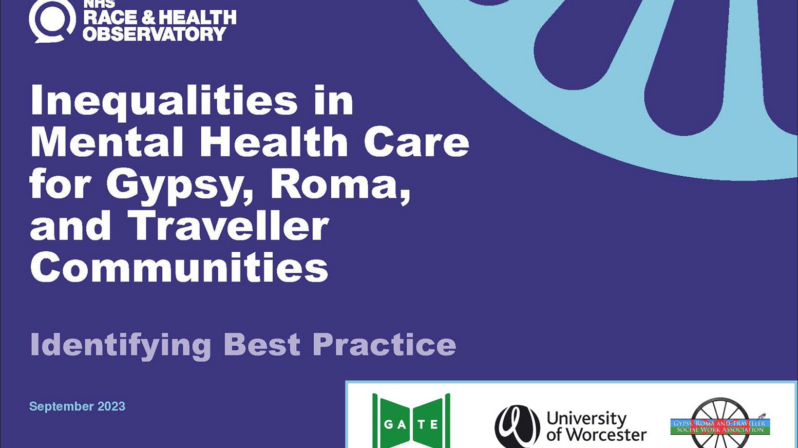This case study is drawn from a programme of research commissioned by the Race and Health Observatory and published in 2023. As part of this project, the team worked with six services in the UK and Ireland to understand good practice in mental health services for these communities. To read more about mental health in Gypsy, Roma, Traveller Communities, you can access the full research project here: https://nhsrho.org/research/identifying-best-mental-health-practice-with-gypsy-roma-and-traveller-communities/
Background
Leeds Gypsy and Traveller Exchange (GATE) is a charity. It was established and founded in 2003 and is led by Gypsy and Traveller people in partnership with others in and across West Yorkshire. Their aim is to improve the quality of life for Gypsy and Traveller People, support with issues that may be affecting Traveller lives, and to build confidence for community members. The services offered to families and individuals within this aim include learning new skills such as literacy skills; support services to improve physical and mental health; as well as education, advocacy, and inclusion support. There are 24 staff employed within Leeds GATE. In the year prior to engagement, approximately 1000 welfare calls were made, and 67 other activities were carried out to support community members. Charitable funding is core for this organisation, with occasional funding from the local council and health organisations.
Leeds GATE are the only organisation of the six case studies in this research project to own their own building, which was made possible with the help of the Lankelly Chase Charity.
In 2020, Leeds GATE produced a comprehensive and insightful report called ‘Don’t Be Beat’. They also trialled safeTALK, an ‘off the shelf’ suicide prevention training course which was, however, frankly critiqued as not sufficiently customised to Gypsy and Traveller communities and quite complex to use. In common with the Cambridgeshire Gypsy Traveller Health Team and GATE Herts, Leeds GATE found that informal and casual contacts were the best way to communicate mental health and anti-suicide messages, which could then lead, as necessary, to more formal professional mental health input.
“My mam always told me that ‘the social’ would take me away even if I did little things like run around outside with no shoes- so it’s in me that if I did something like say I had suicidal thoughts, they were bound to take my children away. So I just suffered and told no-one”.
Key learnings from engagement
Community members
As part of the Observatory’s research, focus groups were arranged with 20 community members and Leeds Gate service users, to discuss perceptions of mental health services and help-seeking behaviours. Several issues were raised, especially concerning perceived outcomes from opening up about psychological struggles. They included:
- Fear of child removal if a mental health problem was divulged
- Need for relationship-based practice
- Social media has a very negative effect on many of our youngsters
- The advocacy service was also discussed and how this is very helpful.
- Problems in gaining access to doctors
Staff members
Funding for mild to moderate mental health support for adults (18 and older), is provided by ‘Live Well Leeds’ (Leeds City Council). A focus group with four staff members at Leeds Gate Gypsy and Traveller Exchange was held in November 2022.
There was some discussion about ‘Don’t be Beat’. The project, delivered by Leeds GATE between 2018-2020, provided ‘SafeTalk’ (a suicide prevention course) which was subsequently found to be too jargonistic and pitched at too high a literacy level for majority community take-up. Therefore Leeds GATE created their own package, ‘Keeping your Friends and Family Safe’, which is believed to be more ‘user friendly’ and has contemporary video clips and role play based on local lived experience. The absence of literacy in many families prevents take up of services and leads to avoidance for fear of not being able to understand what happens in services.
There was also a discussion around ‘tolerated racism’ which demonstrated how racism still exists in professional roles e.g. a local professional stating openly in a recent training session – “I wouldn’t want them living by me”. Further examples were given of ambulances refusing to visit a site and local taxi firms demanding money ‘up front’. These latter examples may have some roots in a distant incident, but they are both discriminatory and illegal.
Staff noted that most referrals to Leeds GATE came direct from the community but there are occasional referrals from mainstream services – it was noted that once a Traveller is with the Leeds GATE mental health advocacy service, it is a battle to get mainstream mental health services to keep that person as an open case. Issues of delay in accessing mainstream services were highlighted as problematic, especially as the advocacy service is supposed to be for ‘mild to moderate’ mental health situations. One example was given of a Traveller, believed to be a suicide risk after a bereavement, who was not seen by their allocated key worker for five months. Covid-19 and the associated lockdown were perceived by staff as having taken away many of the informal community supports for Travellers that had been built up over many years. This raised the question of whether voluntary organisations are being forced to fill gaps that should be the domain of statutory services.
When talking about other sources of support for mental health, the pastoral role of faith organisations arose. At the time of delivering ‘Don’t Be Beat’, Leeds GATE were working in close partnership with an Anglican vicar who was regularly ministering to roadside families, and he organised the invitation list for mental health training, attended by eight Anglican clergy.
Trauma Informed Approach
Leeds GATE use a trauma- informed approach and have begun work on training their whole team in trauma-informed working given the depth of trauma in so many Gypsy, Roma, and Traveller families, and the recognition that it is counterproductive for service users to spend time explaining about the Traveller lifestyle, rather than being there for their own therapy. Some Travellers therefore do not declare their ethnicity and are not ‘wholly’ there when discussing issues and receiving treatment.
One staff member, who was also a Traveller, stated “even when I have to fill in a form, I fear I will be treated unfairly if I put down that I am a Gypsy or a Traveller”. Leeds GATE has connected people to community mental health teams, and their advocacy work has empowered community members to feel confident enough to access external service such as CBT therapy. One community member has attended a “together we can” steering group which develops mental health provision across Leeds.
Replicable good practice
- Mental health advocacy and outreach via employed community members.
- Delivery of specific mental health and trauma-informed training programmes for staff and community members.
- Drop- in groups for community members.
- Investment in education, including a literacy focus.
Inequalities in Mental Health Care for Gypsy, Roma, and Traveller Communities
This case study is part of a report commissioned by the RHO which aims to identify best practice in mental health for Gypsy, Roma and Traveller communities.



